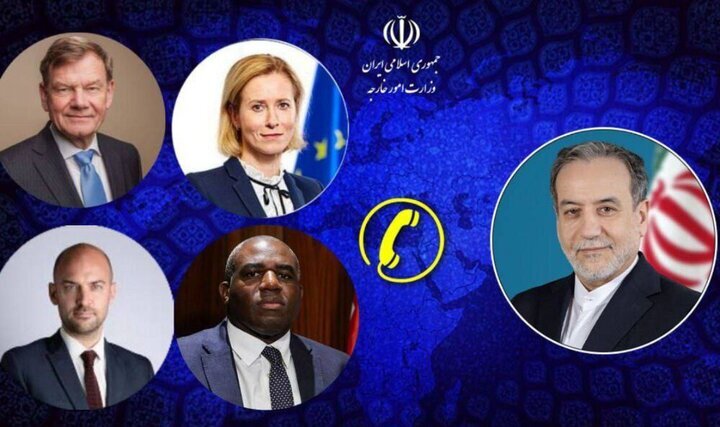Araghchi warns Europe against 'snapback' misuse, stresses Iran’s readiness for diplomacy

Iranian Foreign Minister Seyed Abbas Araghchi, in phone calls with his French, British, German counterparts and EU foreign policy chief Kaja Kallas on Friday, reaffirmed Tehran’s commitment to diplomacy while warning that the European trio and the EU lack both the legal and moral authority to invoke the so-called “snapback” mechanism.
During the phone calls, Araghchi outlined the Islamic Republic’s positions regarding the snapback mechanism and stressed that the three European countries and the European Union lack the legal and moral authority to invoke it.
He also cautioned about the potential consequences of such actions.
Araghchi emphasized that, while Iran defends its interests firmly, it has never abandoned diplomacy and is prepared to pursue any diplomatic solution that safeguards the rights and interests of the Iranian people.
Reacting to repeated European proposals to extend UN Security Council Resolution 2231 in order to allow more time for diplomacy, the Iranian Foreign Minister stated that such decisions fundamentally fall under the purview of the UN Security Council, and Iran will not interfere in the process.
He added that Iran will consult with its allies in the Security Council regarding the implications of such measures and the way forward.
The three European ministers and the EU foreign policy chief reiterated their commitment to finding a diplomatic solution.
It was agreed that Iran’s dialogue with the European countries and the EU will continue next Tuesday at the level of deputy foreign ministers.
On August 8, the three European powers — France, Britain, and Germany — submitted a letter to the UN Security Council outlining their position on the “snapback” mechanism and their proposals regarding the future of Resolution 2231.
The E3 claimed they had offered Tehran a limited extension of some provisions tied to the resolution in exchange for the resumption of direct negotiations with Washington and steps to address what they described as the most urgent concerns about Iran’s nuclear activities.
They further argued that a short-term extension would buy time for pursuing a new agreement, while maintaining the threat of reimposing UN sanctions as leverage.
Iranian officials have been categorical in rejecting the European stance. Foreign Minister Abbas Araghchi stated that the conditions for meaningful talks with the United States “have not yet matured,” while Deputy Foreign Minister Saeed Khatibzadeh warned that pressure on Iran is a miscalculation that could compel Tehran into difficult decisions.
Iranian authorities maintain that such an approach would not only waste Europe’s last remaining card but also strip the three countries of any mediating role, inevitably escalating tensions.
Leave a Comment